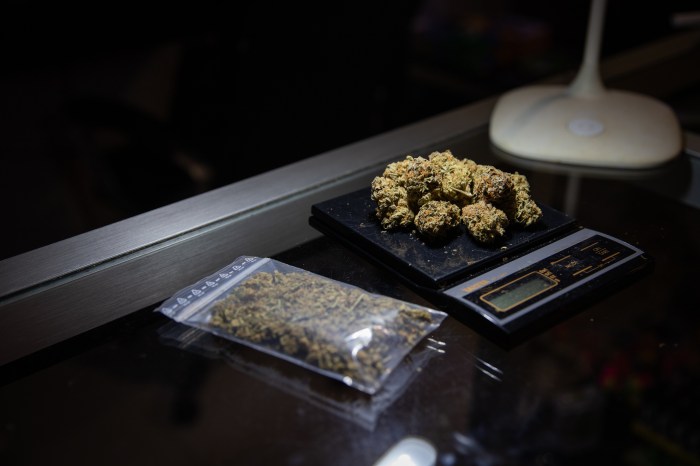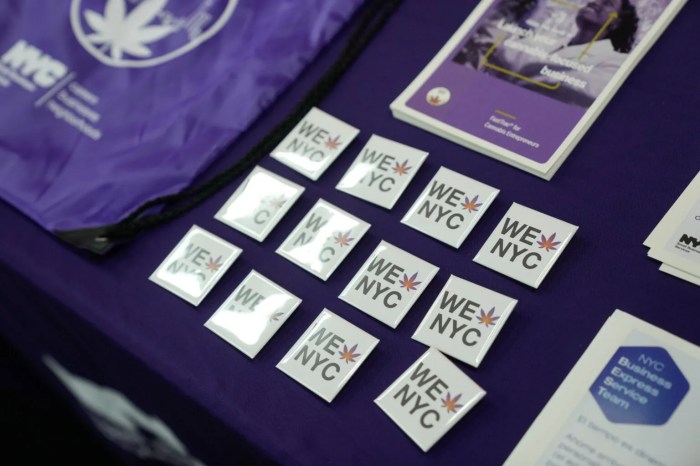Brooklyn’s top prosecutor is clearing records — and breaking them!
A Criminal Court judge on Wednesday vacated convictions for minor pot-possession and public-smoking charges for the first time in New York State history, after District Attorney Eric Gonzalez endorsed clearing the records of 28 former convicts amid his ongoing effort to decriminalize low-level weed charges.
“My office has stopped prosecuting the vast majority of marijuana-possession and smoking cases, because I do not believe that pursuing those cases makes us safer, and because I recognize that the racial disparities in enforcement with respect to these offenses remained intractable,” Gonzalez told Judge Michael Yavinksy.
Do-good lawyers with Legal Aid Society and Brooklyn Defender Services partnered with prosecutors to host three events this fall, where roughly 200 people found guilty of misdemeanor weed charges met with defense lawyers, who filled out motions to retroactively dismiss the convictions on the individuals’ behalf, according to Gonzalez’s spokesman Oren Yaniv.
Some of those motions have yet to be filed, but many of the hundreds of applicants — such as those convicted of blazing behind the wheel — didn’t qualify for dismissals, while others found out that judges already dismissed their charges because they were first-time offenders, Yaniv said.
Gonzalez also moved to vacate more than 1,400 open pot warrants in court on Wednesday, saving hundreds more from future arrests on charges his office doesn’t plan on prosecuting, according to his rep.
Gonzalez — who assumed the role of Acting District Attorney in 2016 following the death of his predecessor Ken Thompson, and dropped the Acting from his title after being elected to the seat the following year — has worked to expand the policy of not prosecuting many marijuana-related arrests that Thompson instituted back in 2014.
Some advocates of weed-law reform previously blasted the policy as too limited to do any good for the people of color typically cuffed for misdemeanor pot infractions, but prosecutors with Gonzalez’s office point to statistics that show plummeting arrest numbers — which dropped by 98 percent this year — as evidence of the policy’s success.
One current hurdle for those who hope to take advantage of the retroactive amnesty program is that individuals must apply to have their records cleared in person, according to Gonzalez, who said any new legislation — such as the marijuana-reform package that Gov. Cuomo said he may announce as soon as next year — must consider a blanket pardon for those already prosecuted under current laws.
“These past convictions do not make us safe, as they may hold back those who carry them from moving forward with their lives as contributing members of society,” the top prosecutor said.
























